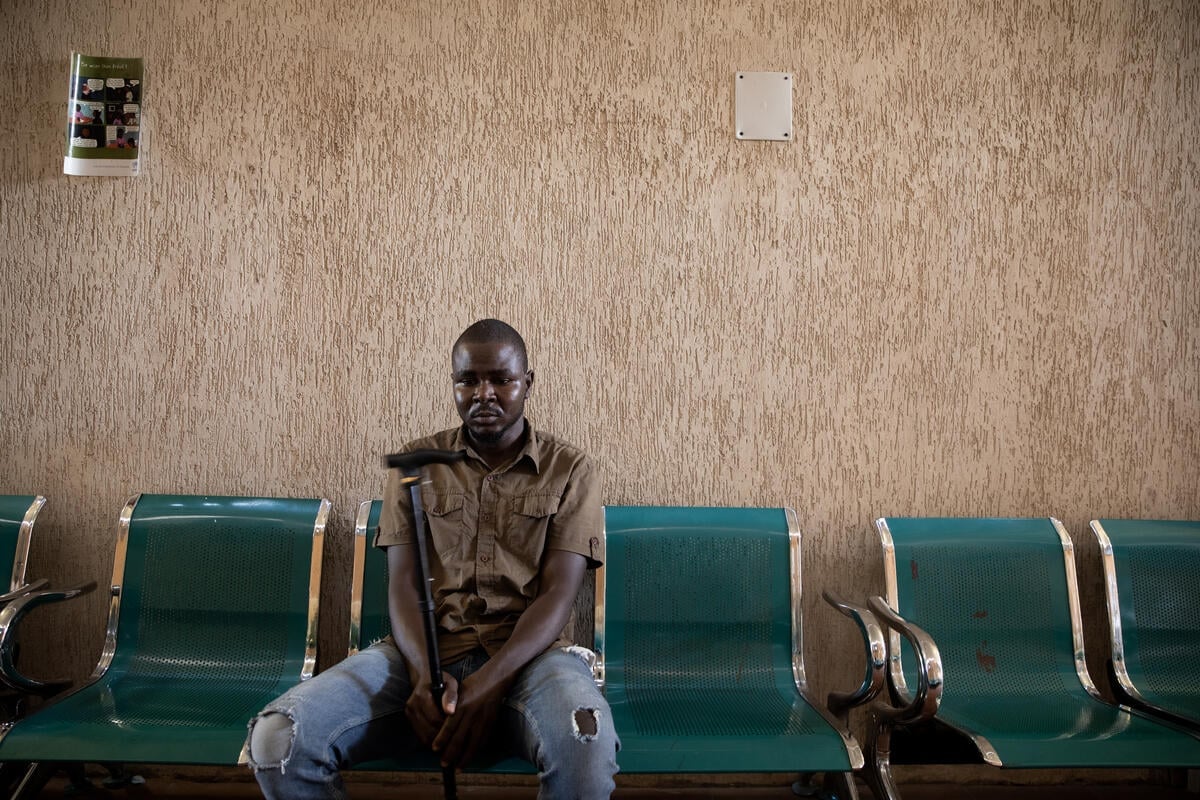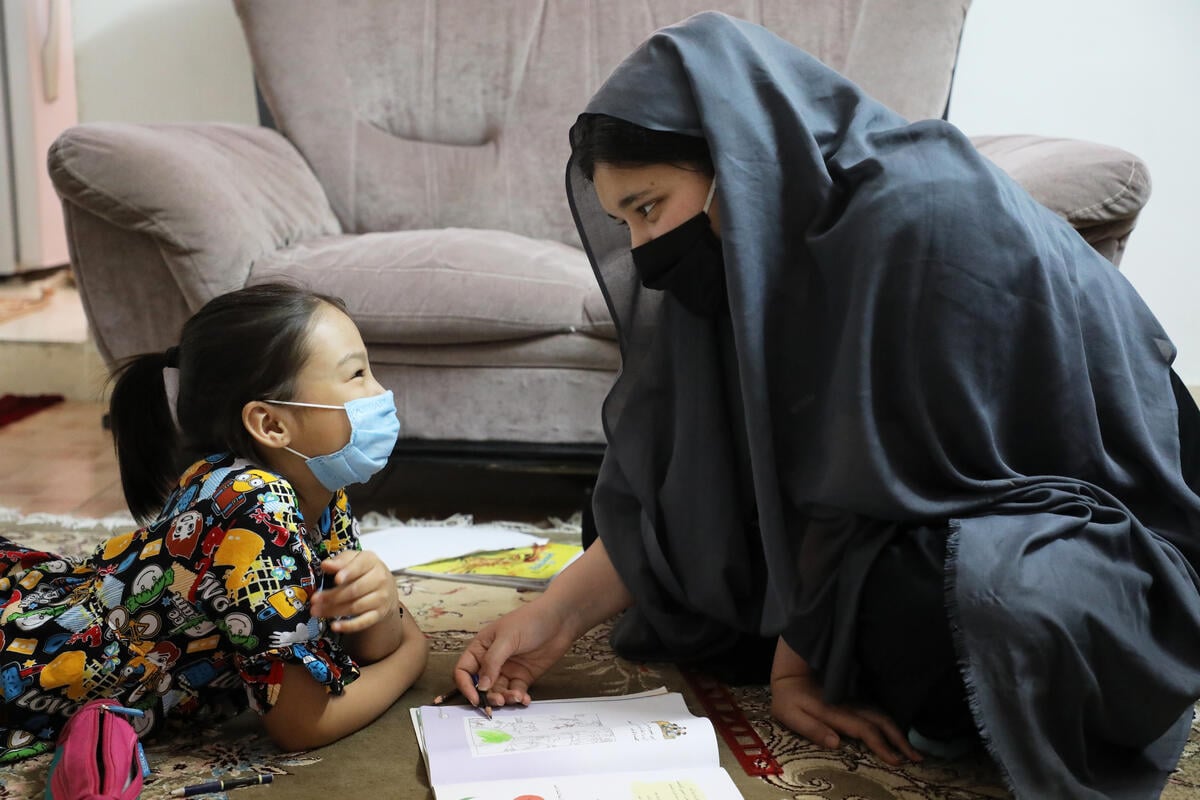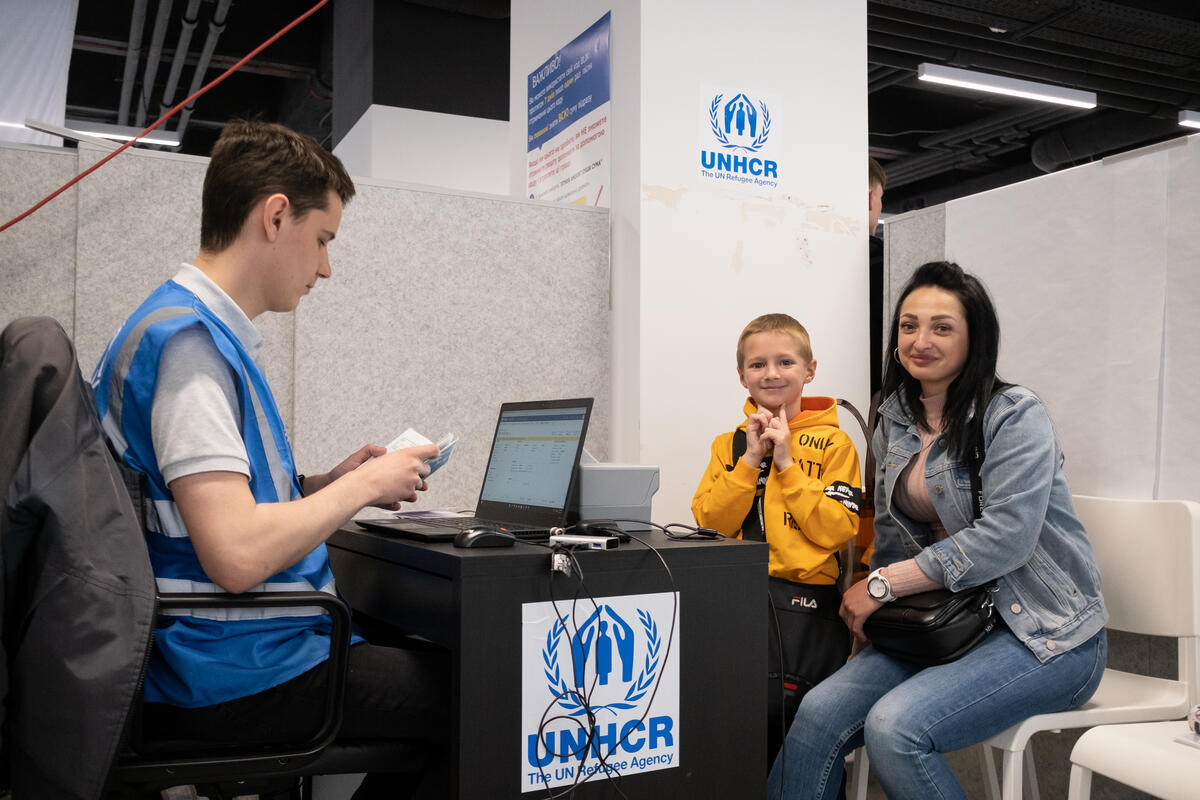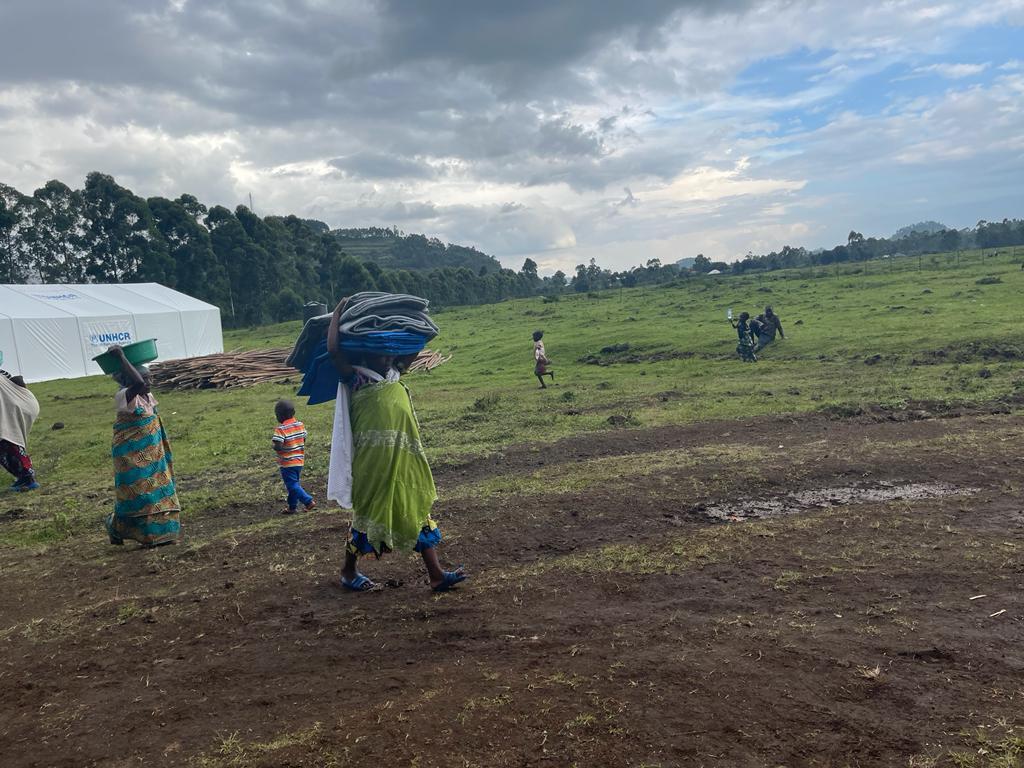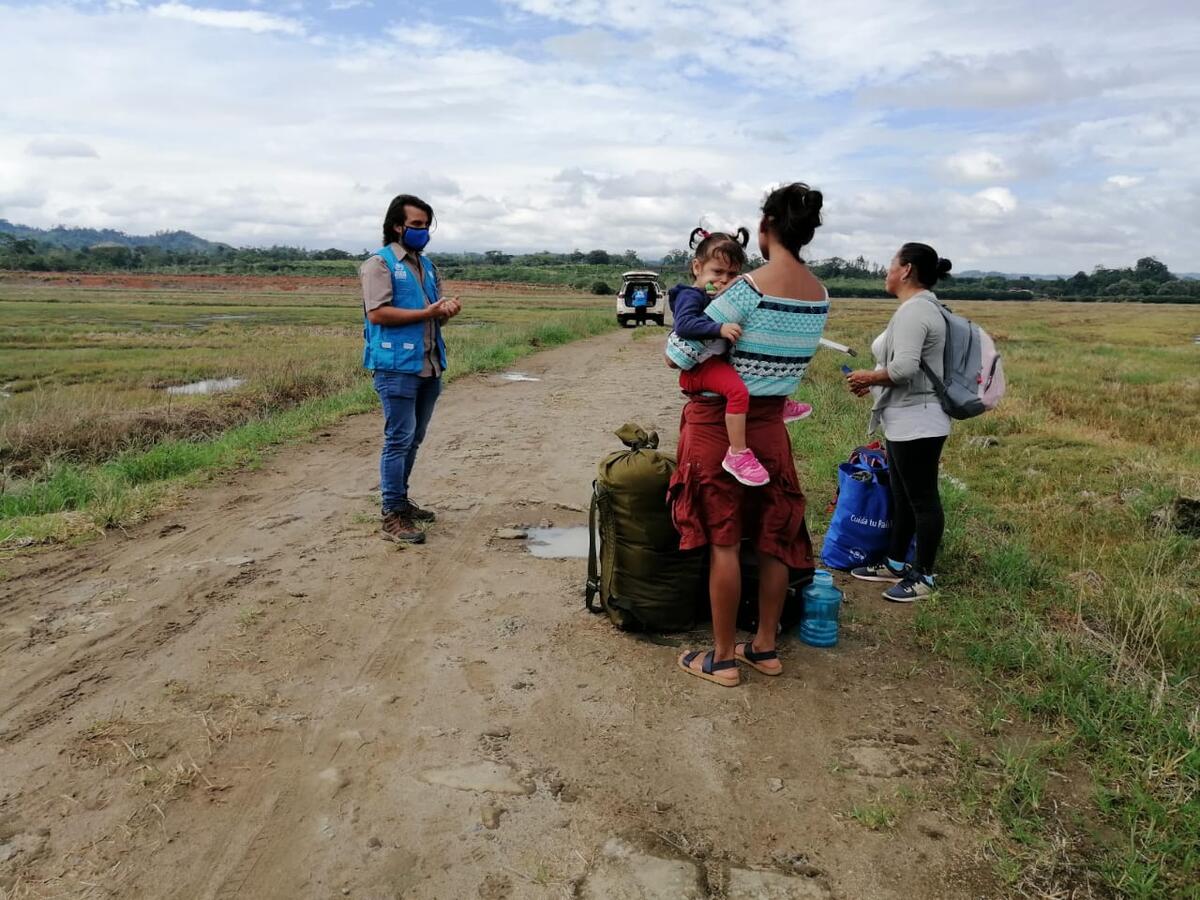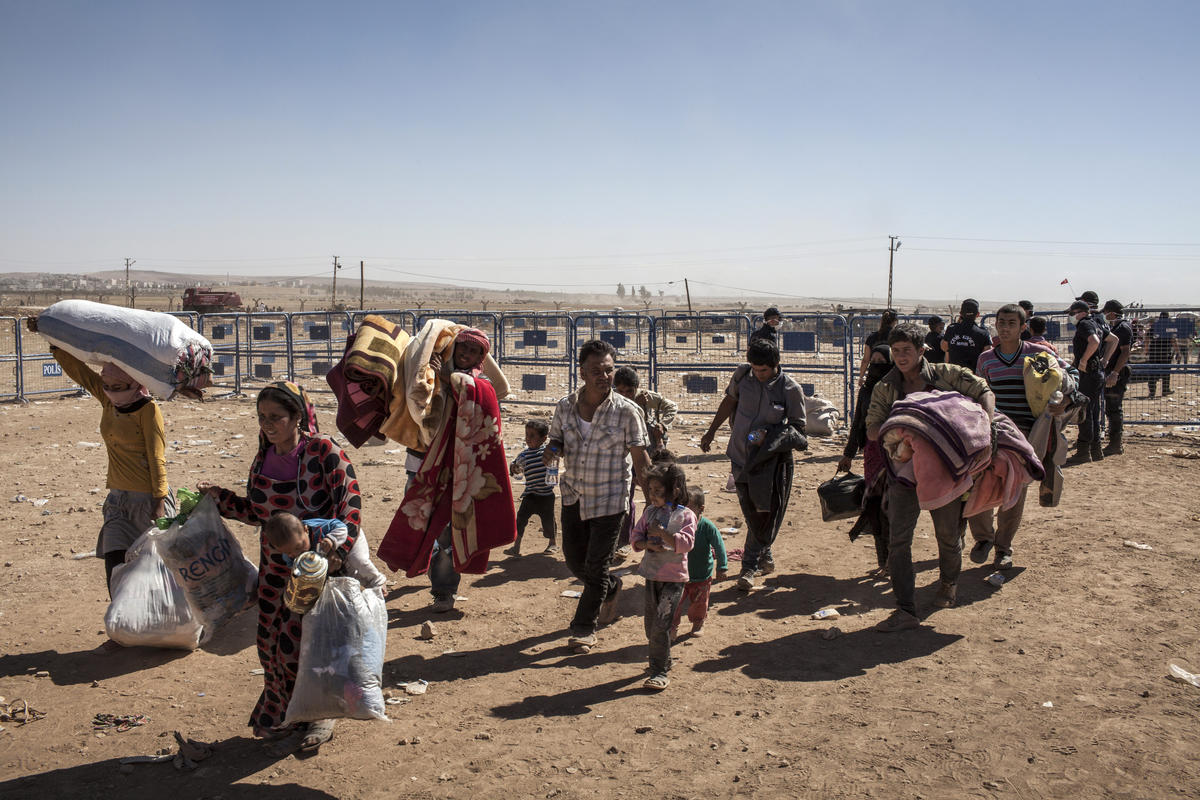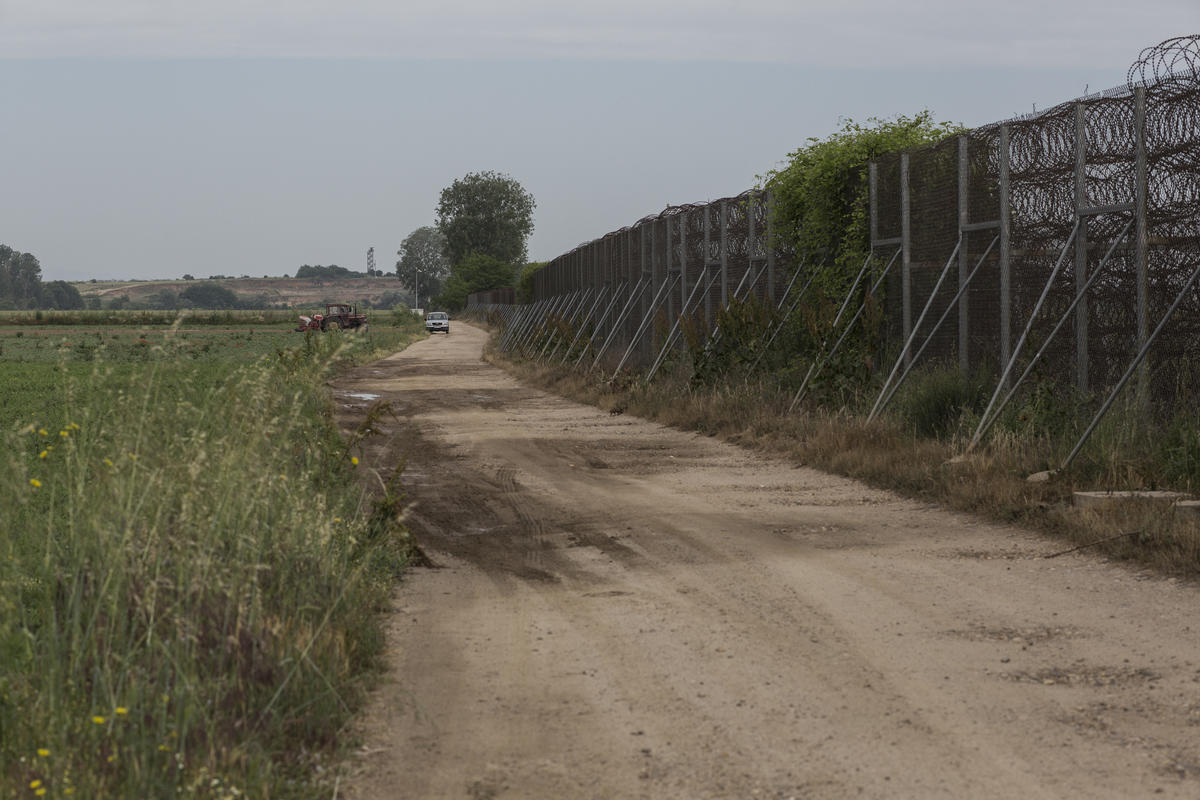Number of asylum seekers in South Africa rises sharply in first quarter
Number of asylum seekers in South Africa rises sharply in first quarter

PRETORIA, 19 May (UNHCR) - The number of people applying for asylum in South Africa rose sharply in the first three months of this year, with 38 percent of the 18,800 individuals coming from Zimbabwe, according to government figures released on Friday.
This is the first time the government has released such detailed, quarterly statistics, and no comparable figures are available for the first quarter 2005. However, total asylum applications last year were 28,000.
"The general instability in most African countries, which has led to deteriorating economies and causing serious internal politico-social frictions, remains without doubt at the base of the dramatic influx of asylum seekers and refugees population observed so far," the Directorate of Refugee Affairs said in its report on the first quarter of 2006.
"This is illustrated by the fact that the Africa continent has accounted for 88 percent of the overall number of asylum seekers contrary to 12 percent for the rest of the world," the report said. "Perhaps, the time has come for a responsible and sustained effort from all regional organizations and states to seek durable solutions to multifaceted regional crises through responsible good governance of States."
The rise in the number of asylum seekers comes as the South African government is stepping up efforts to tackle a backlog of earlier applications from over 100,000 people - some years old. About 30,000 individuals have received official recognition in South Africa as refugees.
During the first quarter of this year, officials in the Home Department, which is responsible for determining whether someone is a refugee, approved the applications of 112 people and rejected 1,144 applications. These cases were all earlier requests for asylum.
"From January to March 2006, 18,800 nationals from 43 developing countries have lodged their applications for asylum at five different Refugee Reception Offices," said the report.
In addition to the usual countries of origin such as Somalia, the Democratic Republic of the Congo (DRC) and Zimbabwe, new trends emerged with requests from people from Malawi, Pakistan, Bangladesh, India, China, United Republic of Tanzania and Ethiopia.
Zimbabweans were by far the largest number of applicants in every reception office, with 7,211 requests for refugee status in the period. The next largest groups were from Malawi, with 2,000 applications, and DRC, with 1,668 applications. The rest of the top 10 countries of origin were Ethiopia (1,154), Bangladesh (976), United Republic of Tanzania (917), Somalia (903), Pakistan (542), Congo (457) and India (446).
"The Directorate of Refugee Affairs has observed that Zimbabwe, DRC, Ethiopia, Malawi, Somalia, Bangladesh, United Republic of Tanzania and Pakistan have all made it through to the top 10 countries producing asylum seekers for the last three months," the report said. "As a matter of fact, nationals from these countries form indisputably the core of asylum seekers and refugees in the Republic of South Africa."
The applications were overwhelmingly from men, estimated at 76 percent of all the applications made in the first quarter. Some 21 percent were from women and only three percent for accompanied children.
"Information presented in this report suggests that Refugee Affairs is faced with complex asylum issues. There is a strong need to opt for new strategies to ensure an efficient and effective management of refugee services," it said.
South Africa, with the continent's most dynamic economy, despite continuing high unemployment, has been a magnet for asylum seekers and migrants from the rest of the continent and beyond.
While South Africa has been a generous host to refugees - it has never established refugee camps and extends full government services to recognised refugees - it also recognises that large numbers of undocumented migrants have been arriving.
"Though migration can never be completely stopped, there is an urgent and critical need to ensure an effective border posts management that only encourages positive migration, eradicates human trafficking and minimizes criminal activities," the quarterly report said. "An establishment of a regional migration framework, for instance a Southern Africa Migration Observatory, might be vital in regulating and monitoring immigration in general within the region."
By Jack Redden in Pretoria, South Africa


